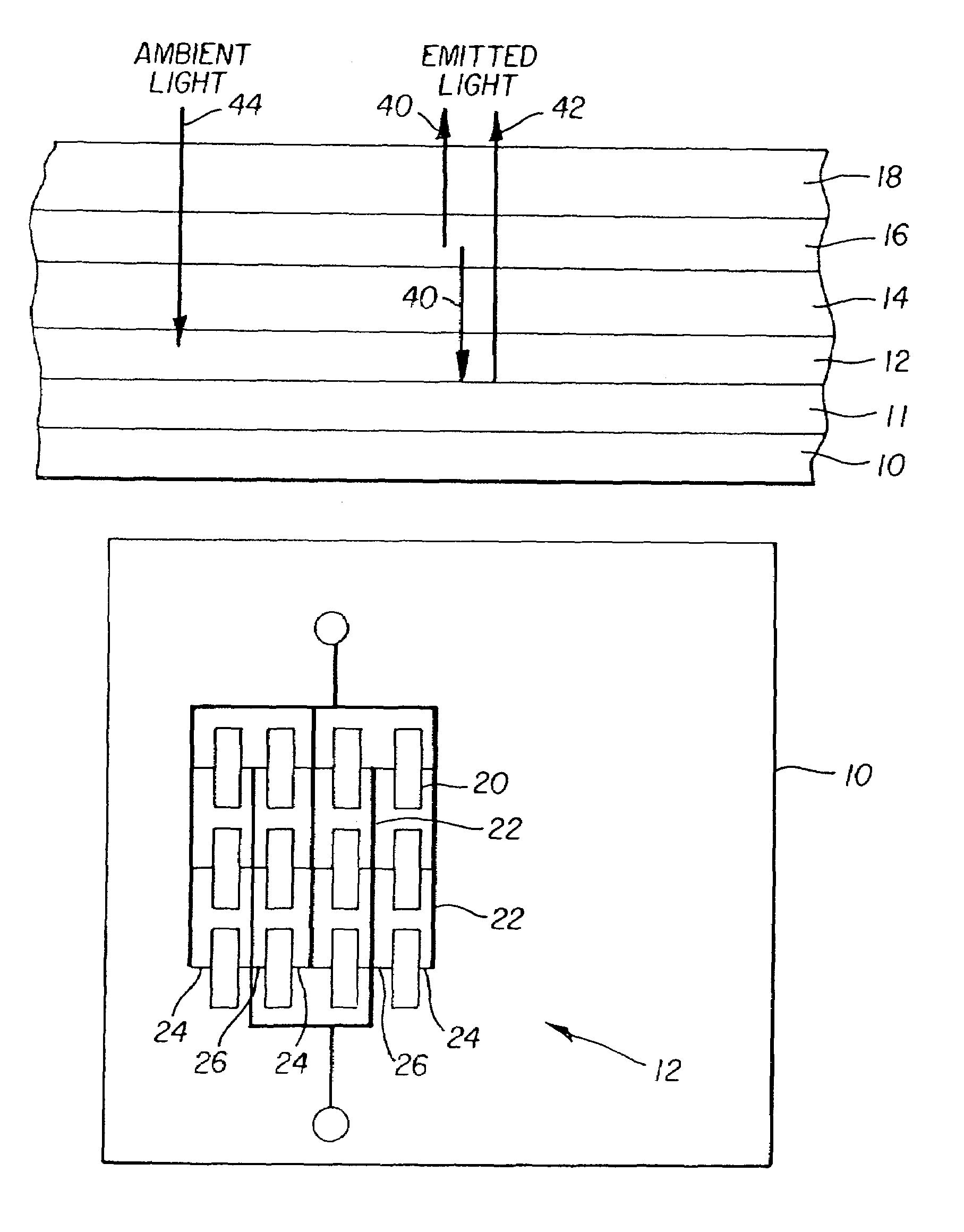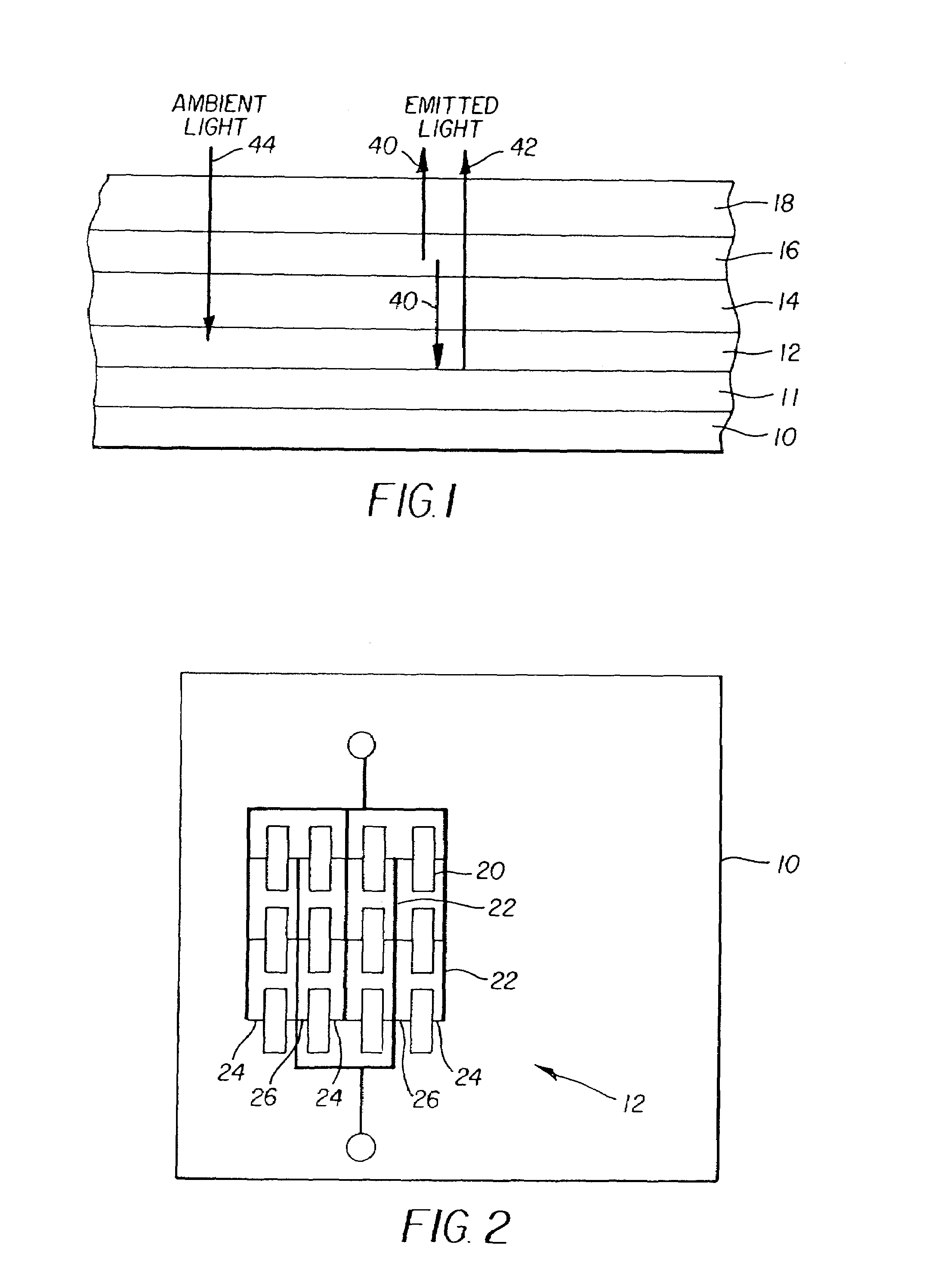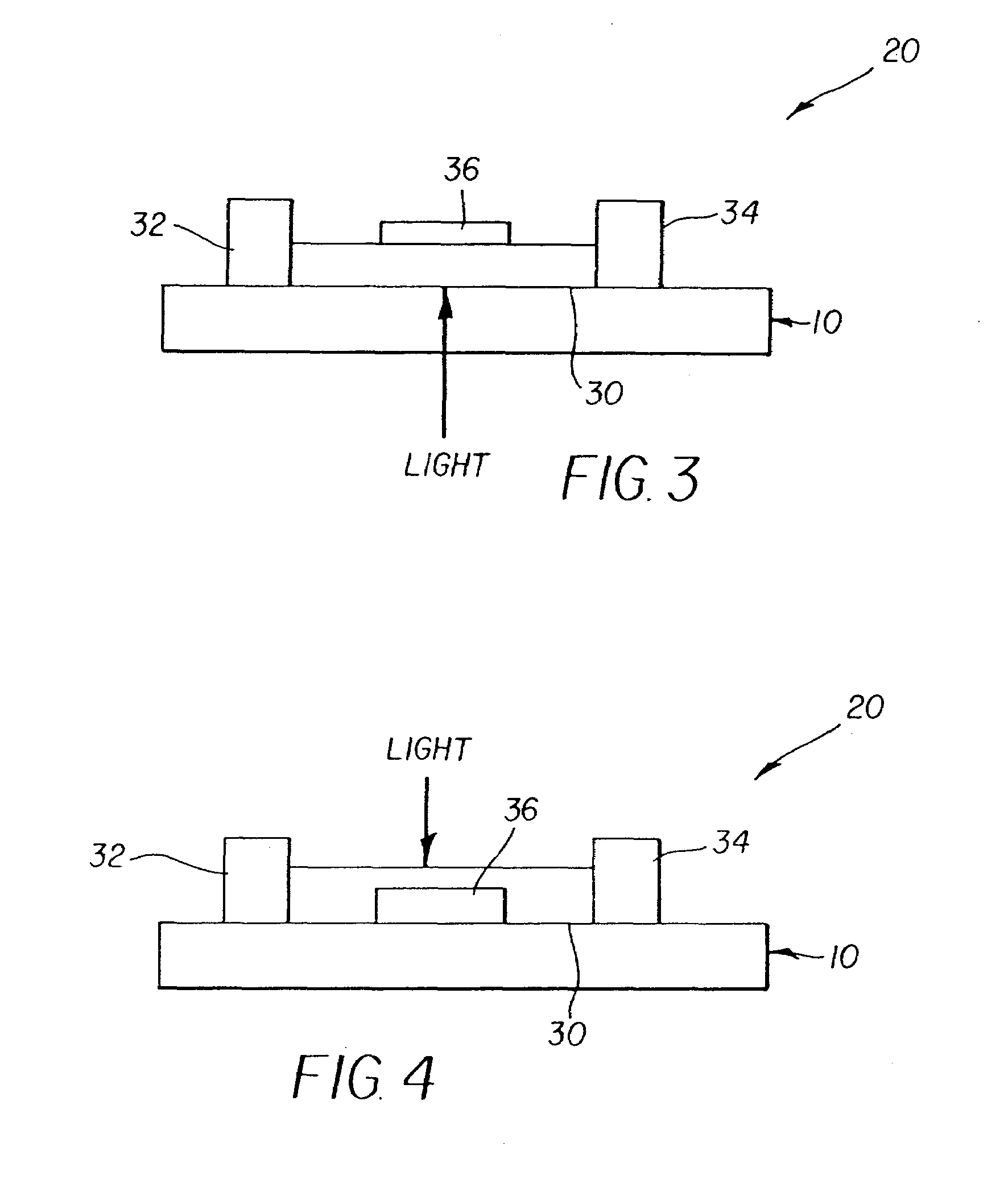OLED display with composite photosensor
a composite photosensor and oled display technology, applied in static indicating devices, photometry using electric radiation detectors, instruments, etc., can solve the problems of reducing the light emitted by half, reducing the efficiency of organic materials in the device, and not being able to provide real-time operation, etc., to maximize the light output
- Summary
- Abstract
- Description
- Claims
- Application Information
AI Technical Summary
Benefits of technology
Problems solved by technology
Method used
Image
Examples
Embodiment Construction
[0020]Referring to FIG. 1, a top-emitter OLED display and photo-sensor, comprises a substrate 10; a composite light sensor layer 12 located over the substrate comprising a plurality of thin-film light sensitive elements connected in parallel; a first transparent electrode 14 located over the plurality of thin-film light sensitive elements; one or more organic layers 16 comprising an OLED located on the transparent electrode 14 and emitting light through the transparent electrode 14; and a second electrode 18 located on the one or more organic layers 16 comprising an OLED. An additional reflective layer 11 may be provided above the substrate beneath the plurality of light sensitive elements in layer 12. In the top-emitter configuration shown in FIG. 1, the second electrode 18 must also be transparent. A planarizing layer, not shown, may be employed between the composite light sensor layer 12 and the transparent electrode 14.
[0021]Referring to FIG. 2, in a top view, composite light se...
PUM
 Login to View More
Login to View More Abstract
Description
Claims
Application Information
 Login to View More
Login to View More - R&D
- Intellectual Property
- Life Sciences
- Materials
- Tech Scout
- Unparalleled Data Quality
- Higher Quality Content
- 60% Fewer Hallucinations
Browse by: Latest US Patents, China's latest patents, Technical Efficacy Thesaurus, Application Domain, Technology Topic, Popular Technical Reports.
© 2025 PatSnap. All rights reserved.Legal|Privacy policy|Modern Slavery Act Transparency Statement|Sitemap|About US| Contact US: help@patsnap.com



